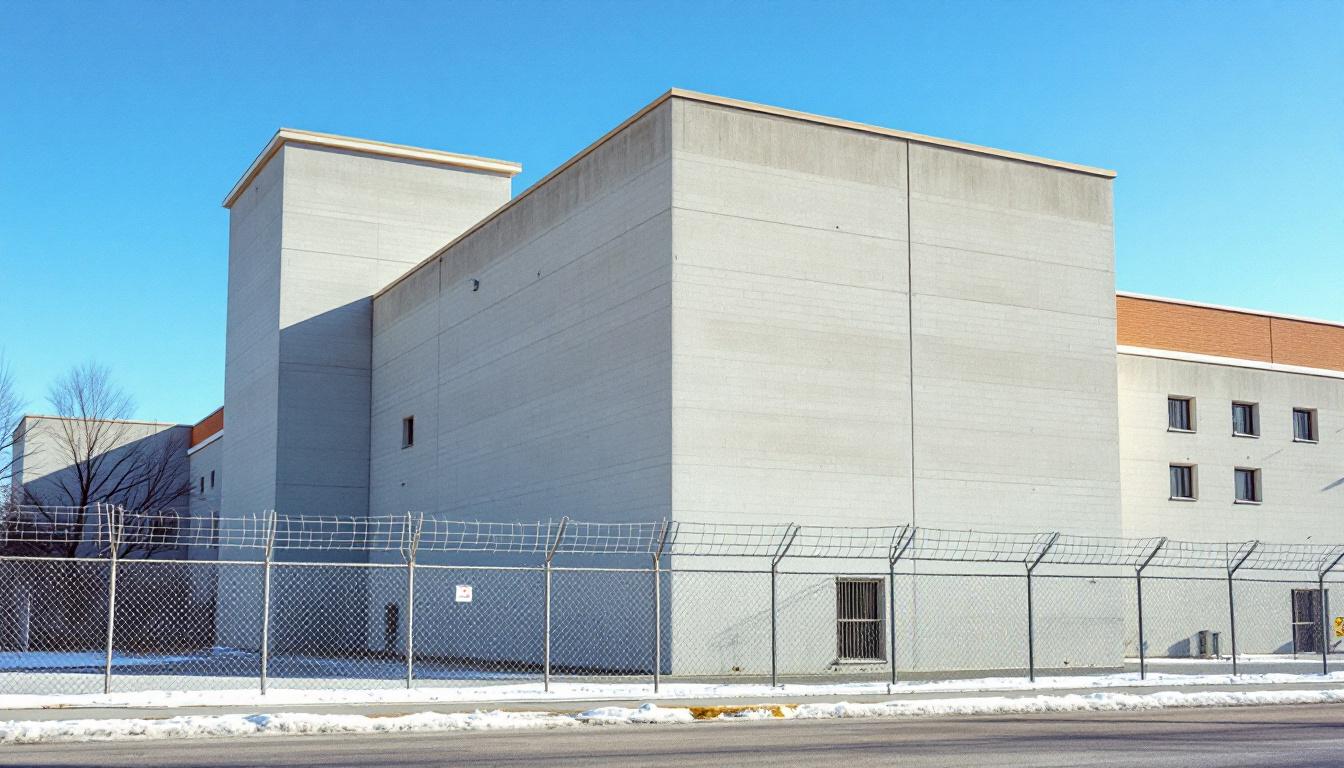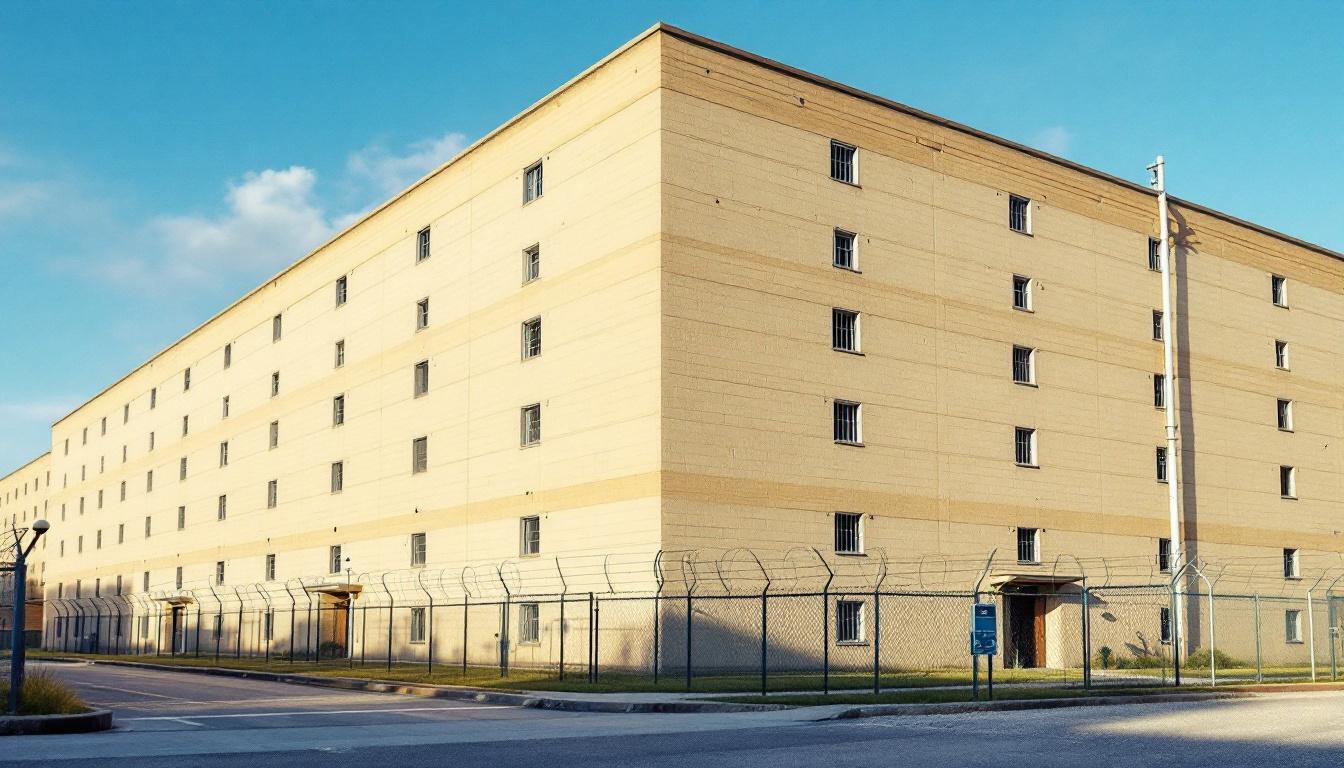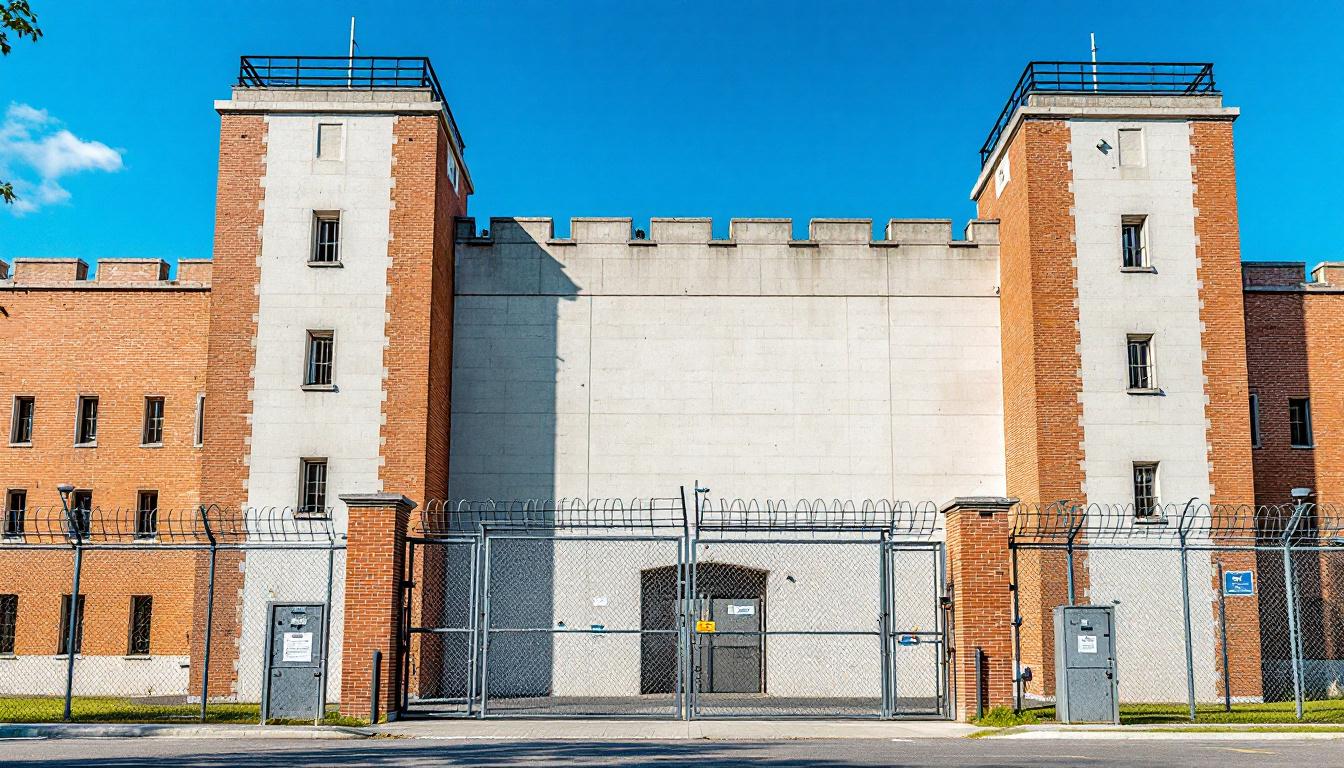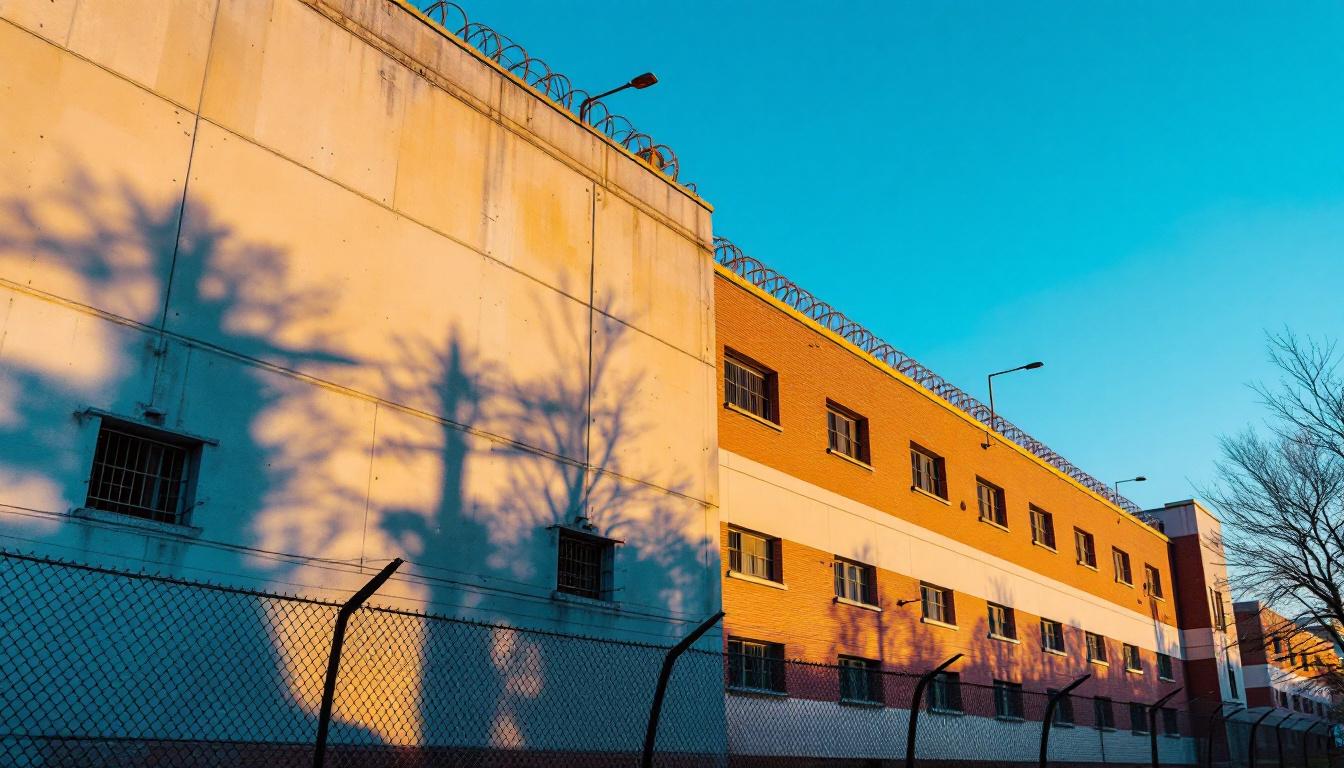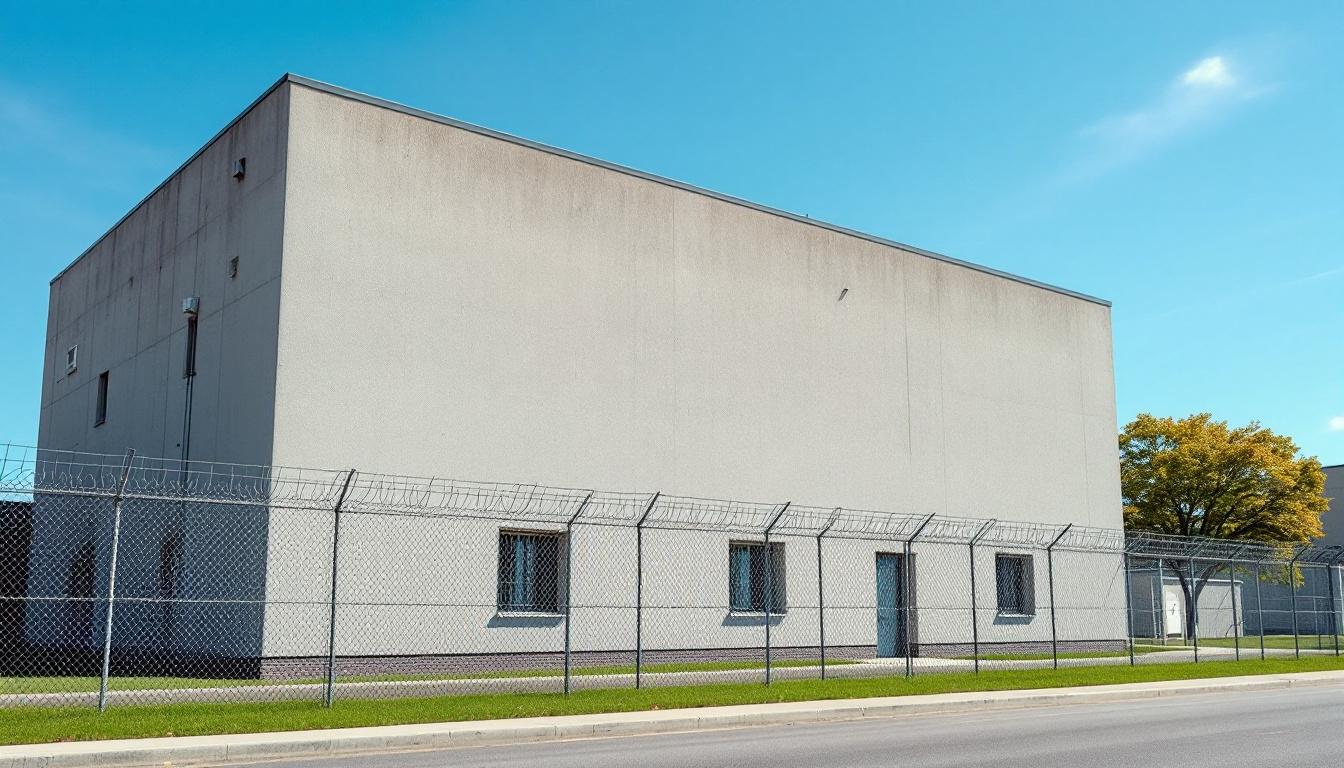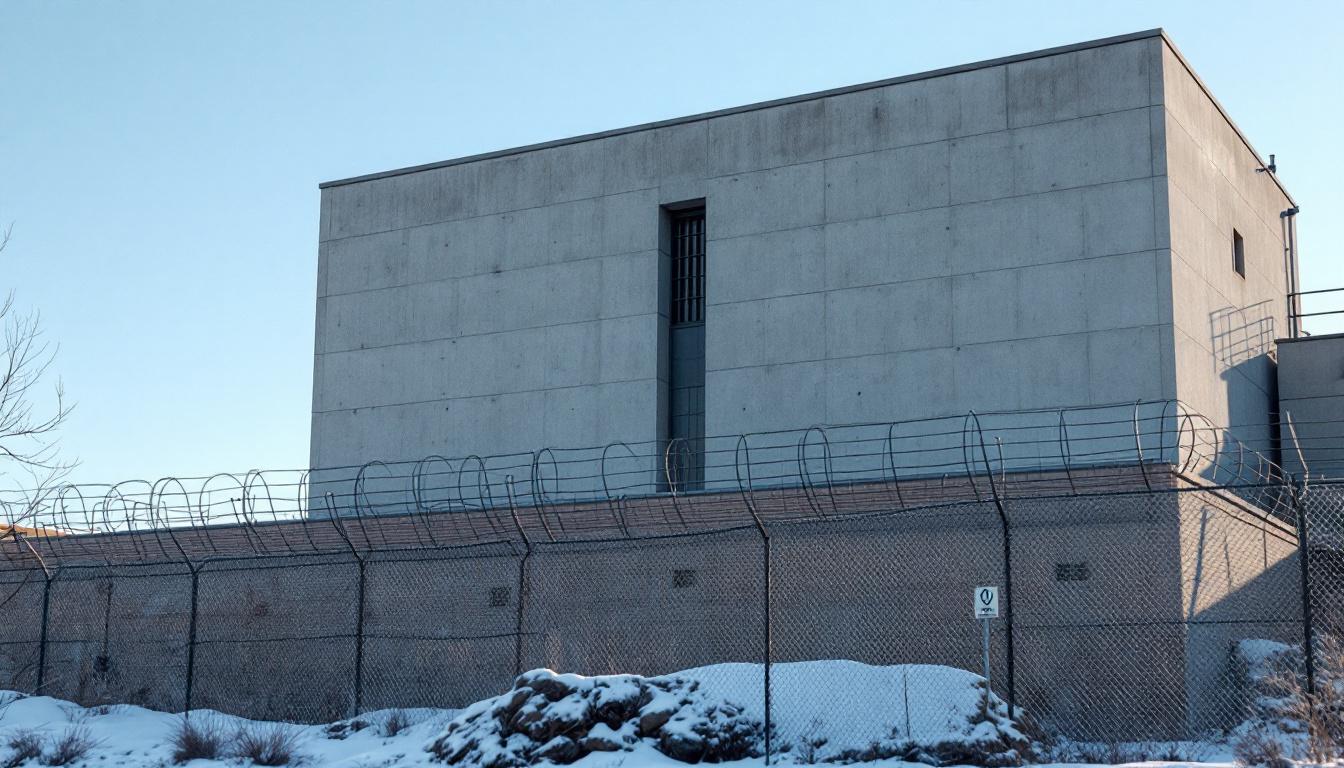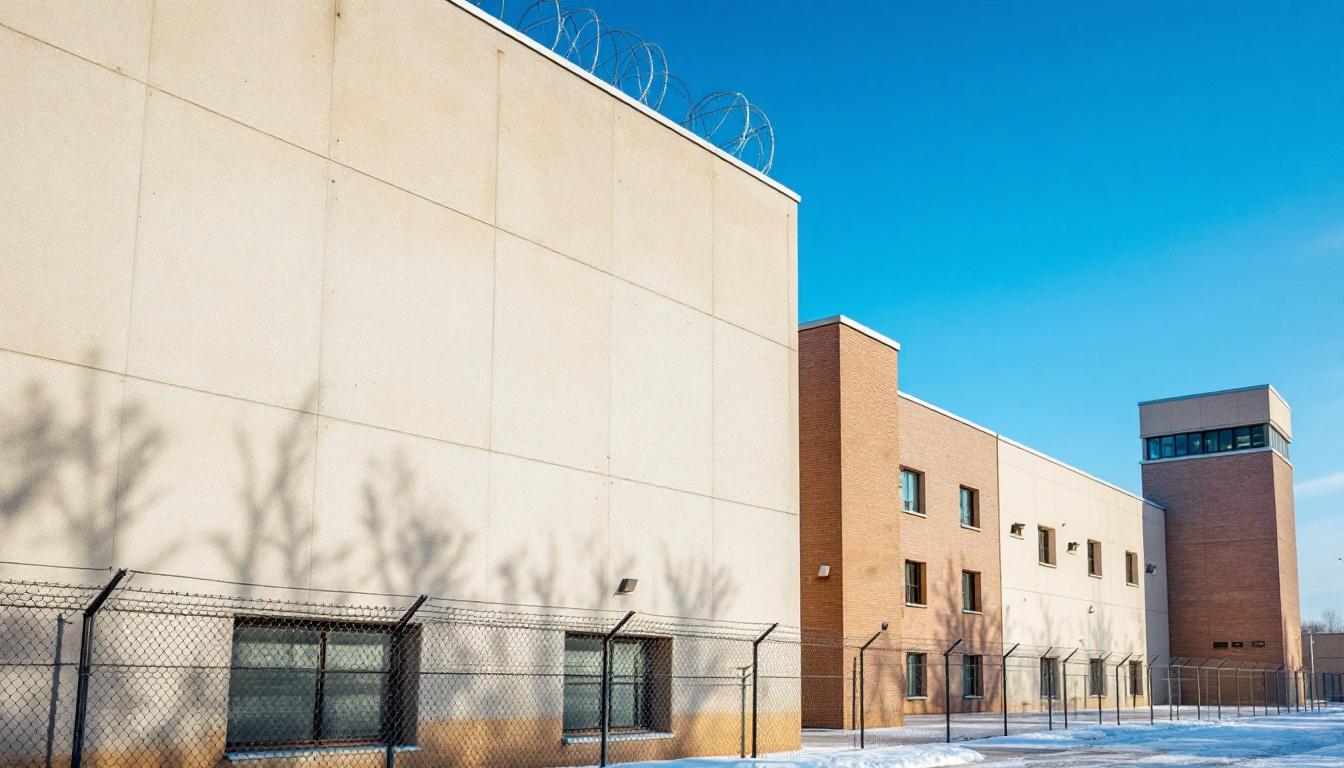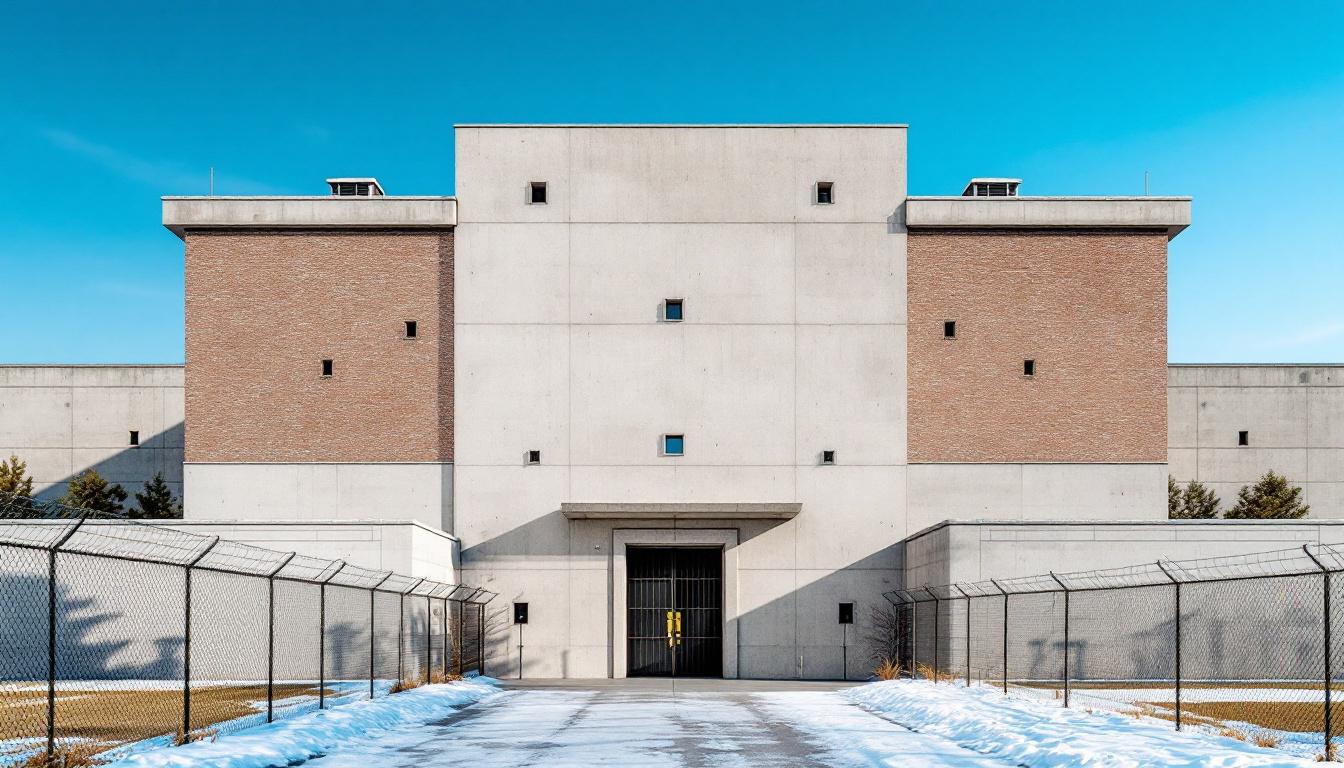
Quick Navigation
How to contact an inmate at Federal Correctional Institution Estill
This comprehensive guide will walk you through how to connect with an inmate at Federal Correctional Institution Estill. Follow the steps below to find an inmate and send letters and photos:
- Search for the inmate using our search tool below
- Create your account or log in to Penmate
- Write your message (up to 6,000 characters)
- Send instantly - inmates receive printed copies daily
Find an Inmate
Search for an inmate to start communicating today
Tip: You can search by first name, last name, or inmate ID number
To contact a person at Federal Correctional Institution Estill start by searching for the person on the official facility website. Perform a search by following these steps:
- Step 1: Enter their first name and last name into the search form and click "Search"
- Step 2: Locate their inmate record
- Step 3: Write down their Inmate ID and any housing information provided
Important! Be sure to enter the person's full name. Nicknames should not be used.
How to Send Messages to Inmates

You can use your phone or computer to send emails, letters, and photos to an inmate. Messages are sent electronically to inmate tablets or kiosks at the facility. If you would like to send a message, start by searching for an inmate at Federal Correctional Institution Estill.
Sending Photos and Postcards

A great way to send love and support to a loved one at Federal Correctional Institution Estill is to send photos and postcards. It only takes a few minutes to send photos from your phone and it makes a huge difference. You can also mail postcards with words of support and inspiration, or design your own postcard for special moments like birthdays and holidays.
Important! Be sure not to send any explicit photos or they may not be approved by the facility. You can also use a photo printing app like Penmate to make sure your photos are printed at the correct size (4x6 or 3x5) and are mailed according to the rules and regulations of Federal Correctional Institution Estill.
Frequently asked questions about Federal Correctional Institution Estill
-
How long does it take to deliver a message?
If you're sending an email message your letter is usually delivered within 24-48 hours. For messages sent via mail you should expect delivery within 3-7 days. All messages will need be approved by Federal Correctional Institution Estill.
-
How much does it cost to send a message to Federal Correctional Institution Estill?
You can send a message free using your phone or mail a message via USPS for the price of a $0.60 stamp and envelope. You can also purchase credits or e-stamps from services starting at $1.99.
-
What services can I use to contact an inmate at Federal Correctional Institution Estill?
Penmate
You can use Penmate to send letters and photos to an inmate from your phone. It's an easy way to stay in touch during your loved one's incarceration. Use the inmate locator to find an inmate's location and contact information, then you can send messages within a few minutes.
Securus messaging
Securus may be another option for communicating with an inmate at Federal Correctional Institution Estill. You can create a friends and family account and purchase credits to send messages. All messages will be reviewed and must be approved by the facility.
JPay
Some county jails and state prisons may support sending messages with JPay. You must register an account with the system, find your loved one, and purchase stamps to send messages. For some locations you can also attach photos.
Smart Jail Mail
You may also check if Smart Jail Mail is available at Federal Correctional Institution Estill. Smart Jail Mail is operated by Smart Communications and has contracted with some state and county jails. After purchasing credits, your messages and photos are sent to the facility, printed out, and then handed out to your loved one.
-
What is the mailing address of Federal Correctional Institution Estill?
Mailing address:
Federal Correctional Institution Estill
100 Prison Rd
Estill, SC 29918
Phone: (803) 625-4607Business hours:
- Monday: Closed
- Tuesday: Closed
- Wednesday: Closed
- Thursday: Closed
- Friday: 5:00 – 9:00 PM
- Saturday: 8:00 AM – 3:00 PM
- Sunday: 8:00 AM – 3:00 PM
-
What are the visiting hours at Federal Correctional Institution Estill?
Visiting hours at Federal Correctional Institution Estill vary by housing unit and security level. Generally, visits are scheduled on weekends and holidays, with some facilities offering weekday visits. Contact the facility directly at (803) 625-4607 or check their website for the current visiting schedule. Visits typically last 30-60 minutes and must be scheduled in advance.
-
What items are prohibited when sending mail to Federal Correctional Institution Estill?
Prohibited items typically include: cash, personal checks, stamps, stickers, glitter, glue, tape, staples, paperclips, polaroid photos, musical or blank greeting cards, hardcover books, magazines with staples, and any items containing metal or electronics. Only send letters on plain white paper with blue or black ink. Photos must be printed on regular photo paper (no Polaroids). Always check with Federal Correctional Institution Estill for their specific mail policies.
-
How do I send money to an inmate at Federal Correctional Institution Estill?
You can send money to an inmate at Federal Correctional Institution Estill through several methods: 1) Online using JPay, Access Corrections, or the facility's approved vendor, 2) Money orders mailed directly to the facility with the inmate's name and ID number, 3) Kiosks located in the facility lobby, or 4) Over the phone using a credit or debit card. Fees vary by method, typically ranging from $2.95 to $11.95 per transaction.
-
Can I schedule a video visit with an inmate at Federal Correctional Institution Estill?
Many facilities now offer video visitation as an alternative to in-person visits. At Federal Correctional Institution Estill, video visits may be available through services like Penmate, Securus Video Connect, GTL, or ICSolutions. Video visits typically cost $10-20 for 20-30 minutes and must be scheduled in advance. You'll need a computer or smartphone with a camera and reliable internet connection. Contact the facility for their specific video visitation policies and approved vendors.
-
What identification do I need to visit an inmate at Federal Correctional Institution Estill?
All visitors must present valid government-issued photo identification such as a driver's license, state ID, passport, or military ID. Minors must be accompanied by a parent or legal guardian who can provide the minor's birth certificate. Some facilities require visitors to be on the inmate's approved visitation list, which may require a background check. Contact Federal Correctional Institution Estill for specific ID requirements and visitor approval procedures.
-
How can I find out an inmate's release date?
To find an inmate's release date at Federal Correctional Institution Estill, you can: 1) Use the online inmate search tool if available, 2) Call the facility's records department, 3) Contact the inmate's case manager or counselor, or 4) Have the inmate provide this information during a call or visit. For privacy reasons, some facilities only release this information to immediate family members.
Facility Overview
Contact Information
Federal Correctional Institution Estill100 Prison Rd
Estill, SC 29918
Phone: (803) 625-4607
Official Website

About Federal Correctional Institution Estill
Federal correctional facilities serve as structured environments where security protocols and rehabilitation programming intersect to address both public safety and individual transformation needs. FCI Estill, SC operates within this framework as part of the Federal Bureau of Prisons system, positioned in the rural community of Estill, South Carolina, where the facility contributes to the broader correctional infrastructure serving the region's justice system requirements.
The facility typically maintains security measures designed to balance institutional safety with opportunities for the population services that support eventual community reintegration. Through this process-oriented approach, FCI Estill generally provides access to educational programming, vocational training opportunities, and substance abuse treatment services that may help individuals develop skills relevant to post-release success. The SC correctional facility often incorporates work assignments and recreational activities as part of daily operations, creating structured routines that can support personal development while maintaining institutional order.
Located in South Carolina's Lowcountry region, this correctional facility operates within a network of state and federal institutions that collectively address the correctional needs of the area. The facility's role in SC's correctional system typically includes coordination with community organizations and family support services that may facilitate connections between individuals and their support networks. Through these various programming elements and security procedures, FCI Estill generally works to fulfill its dual mission of maintaining secure custody while providing opportunities for rehabilitation and preparation for eventual community reentry.
Programs & Services
Through a comprehensive framework of interconnected services, supportive programming at FCI Estill creates pathways for meaningful personal development and successful community reintegration. The facility's approach recognizes that effective rehabilitation requires addressing multiple dimensions of an individual's needs, from foundational literacy skills to emotional wellness and spiritual growth. This holistic philosophy ensures that the population receives coordinated support across various domains, fostering an environment where participants can develop the tools necessary for sustainable positive change upon their return to society.
Educational services form the cornerstone of developmental programming, typically encompassing both basic literacy instruction and advanced academic coursework designed to meet diverse learning needs. Special education services may supply individualized support for participants requiring specialized instructional approaches, ensuring that learning differences do not become barriers to progress. In addition to this academic foundation, vocational programs often include hands-on training opportunities that allow the population to develop marketable skills in various trades and technical fields, creating tangible connections between institutional learning and future employment prospects.
Therapeutic interventions, particularly cognitive behavioral therapy, may offer structured approaches to addressing thought patterns and behaviors that contribute to criminal conduct. These evidence-based programs typically work in conjunction with faith-based initiatives, which often includes chaplaincy services, religious study groups, and spiritual counseling opportunities that address the moral and ethical dimensions of personal transformation. The integration of these therapeutic and spiritual support systems creates a comprehensive network of resources, enabling participants to explore multiple avenues for personal growth while developing the resilience and coping strategies essential for successful reintegration into their families and communities.
Daily Life & Visitation
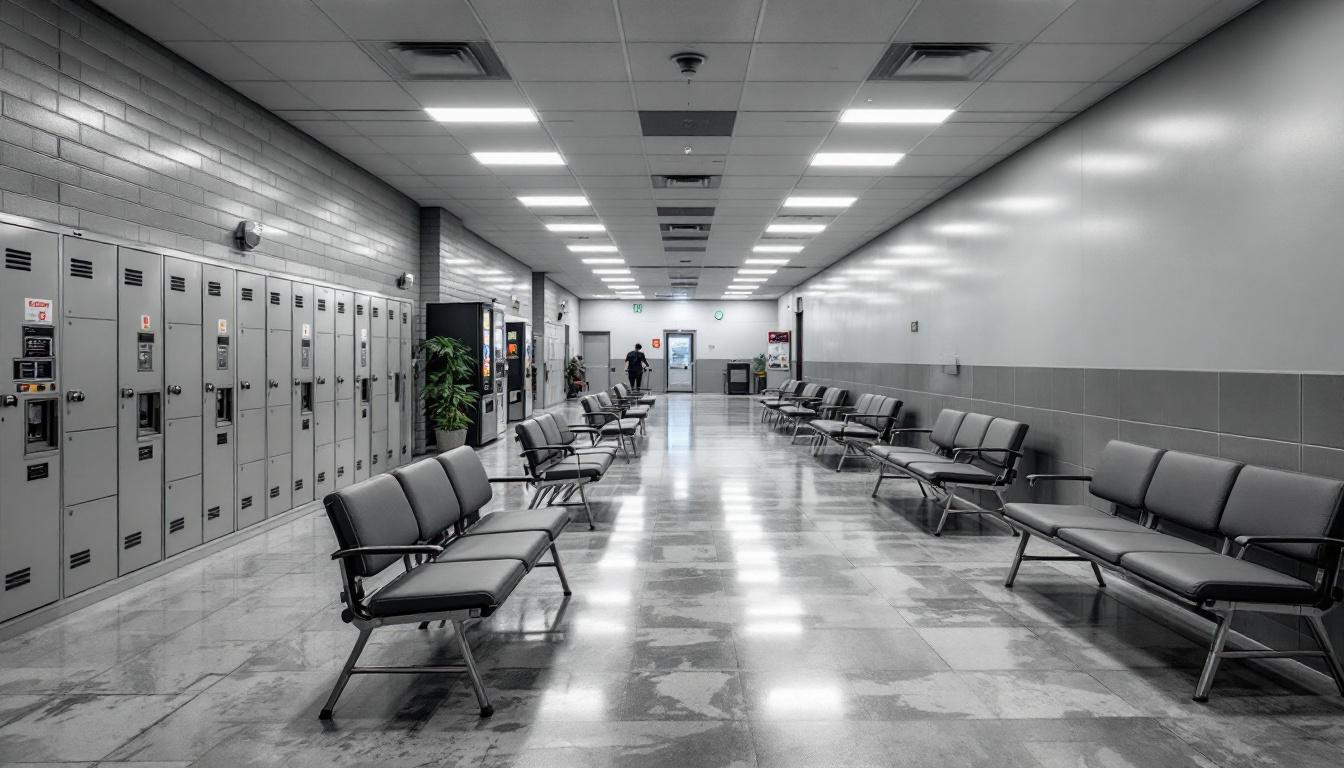
The carefully orchestrated organizational framework at FCI Estill shapes every aspect of the population's experience, with structured schedules and clearly defined protocols governing movement, activities, and interactions throughout the facility. Today's routine consistently begins with early morning counts and meal service, followed by work assignments that supply essential structure to the daily experience. The population typically moves through their day according to predetermined schedules that balance institutional security requirements with opportunities for personal development, recreation, and maintaining family connections.
Living accommodations at the facility generally consist of housing units designed to accommodate multiple residents, with each individual typically assigned a designated living space that includes basic furnishings and storage for approved personal property. The dining arrangements usually involve scheduled meal times in common areas, where the population gathers for breakfast, lunch, and dinner according to established rotations that help manage facility operations efficiently. In addition to this structured meal schedule, residents may often access commissary services to supplement their dietary needs with approved items purchased through their institutional accounts.
Programming schedules supply the population with various opportunities for personal growth, including educational courses, vocational training, and recreational activities that typically take place during designated time periods throughout the week. Despite this structured environment, the facility generally maintains policies that allow for regular family visitation and communication options such as telephone calls and correspondence, helping residents maintain important connections with their support systems. Work assignments usually range from facility maintenance and food service to administrative support roles, providing the population with purposeful daily activities while contributing to the overall operation of the institution.
Ready to Connect?
Start communicating with your loved one today
Search for an Inmate
